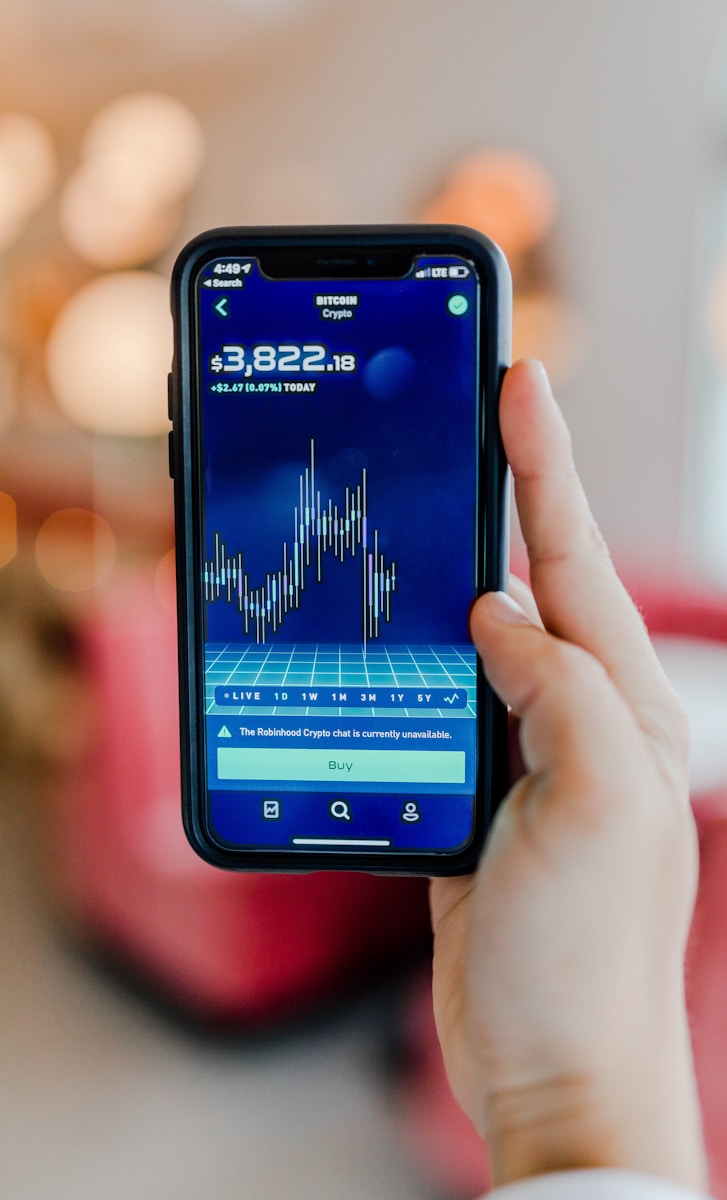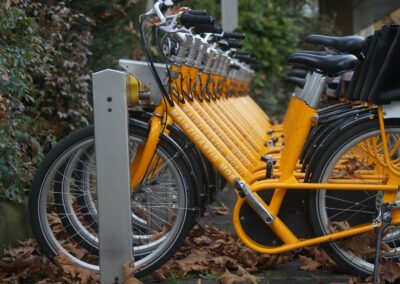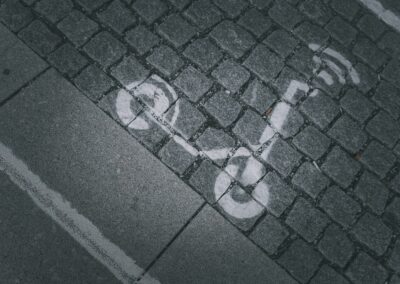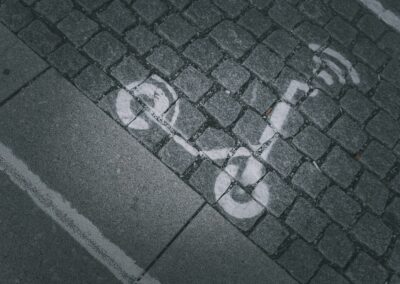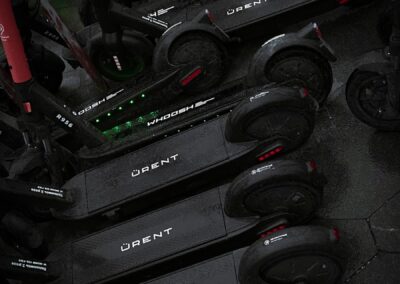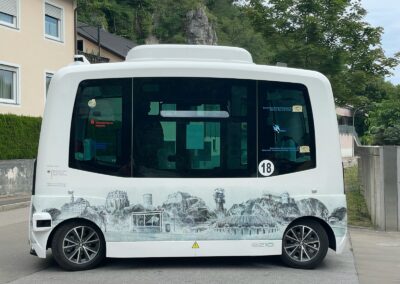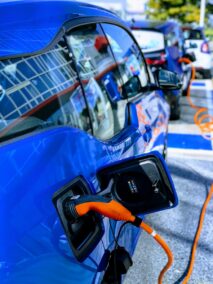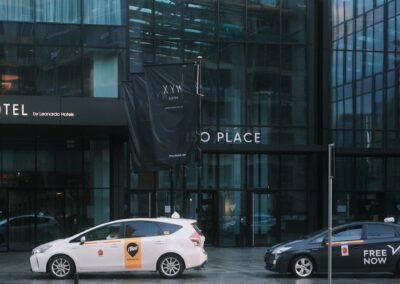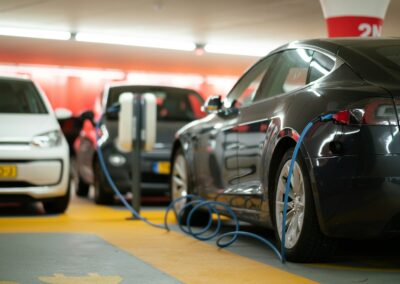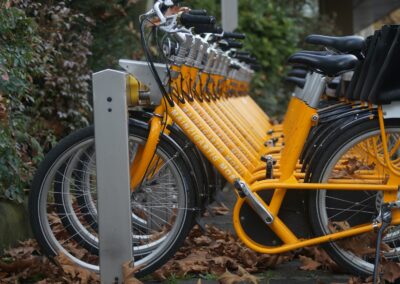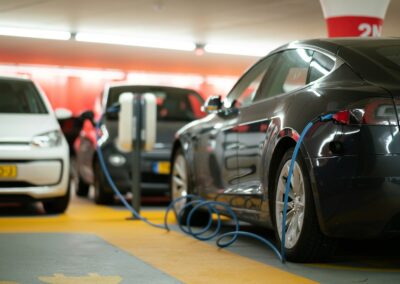Enhancing Urban Mobility with IoT Technologies
Transforming Bike-Sharing Systems
The integration of IoT in sustainable urban mobility is playing a pivotal role in revolutionizing bike-sharing systems, particularly in vibrant cities such as Riyadh and Dubai. By embedding IoT technology into bike-sharing programs, these urban centers can achieve a higher level of efficiency and user satisfaction. IoT sensors embedded in bikes allow for real-time tracking and management, ensuring that bicycles are readily available where and when they are needed. This technology facilitates dynamic rebalancing of bike stations, optimizing the distribution of bikes across the city based on demand patterns.
Moreover, IoT-enabled bike-sharing systems provide valuable data analytics that helps city planners and administrators understand usage trends, identify popular routes, and improve infrastructure. This data-driven approach supports the development of more effective transportation strategies and enhances the overall user experience. For instance, real-time information on bike availability and station occupancy can be delivered through mobile apps, allowing users to plan their journeys more efficiently. As a result, IoT not only enhances the operational efficiency of bike-sharing systems but also contributes to the promotion of sustainable transportation options in urban environments.
Advancing Electric Vehicle Adoption
The role of IoT in sustainable urban mobility extends significantly to the adoption and integration of electric vehicles (EVs). In cities like Dubai and Riyadh, where modern technology and innovation are key priorities, IoT technologies are driving advancements in EV infrastructure and management. IoT solutions enable smart charging stations that monitor and manage the charging process, optimizing energy use and reducing costs. These smart charging stations can communicate with the grid to adjust charging rates based on electricity demand, ensuring that EVs are charged efficiently and sustainably.
Additionally, IoT technologies support the development of vehicle-to-everything (V2X) communication systems, which enhance the interaction between electric vehicles, traffic management systems, and other infrastructure. This communication facilitates improved route planning, reduces traffic congestion, and enhances safety by providing real-time updates on road conditions and potential hazards. By leveraging IoT for EV management and infrastructure, cities can accelerate the transition to cleaner transportation solutions and contribute to a more sustainable urban environment.
Strategic Implications for Urban Planning and Management
Improving Urban Mobility with Data-Driven Insights
The strategic use of IoT in sustainable urban mobility provides urban planners and policymakers with valuable insights that drive informed decision-making and enhance the efficiency of transportation systems. By analyzing data collected from IoT-enabled bike-sharing systems and electric vehicles, city officials can develop targeted strategies to address urban mobility challenges. This data-driven approach allows for the identification of high-traffic areas, peak usage times, and areas in need of improved infrastructure, leading to more effective urban planning and resource allocation.
Furthermore, IoT technologies enable the integration of various transportation modes into a cohesive and efficient urban mobility network. For example, data from bike-sharing programs can be used to inform the placement of EV charging stations and vice versa, creating a seamless transportation experience for users. This holistic approach to urban mobility not only improves the efficiency of transportation systems but also supports the development of sustainable cities that prioritize environmental and economic benefits.
Leadership and Project Management in Smart Mobility Initiatives
Effective leadership and project management are crucial for the successful implementation of IoT in sustainable urban mobility initiatives. Business executives and mid-level managers must navigate the complexities of integrating IoT technologies into existing transportation systems while ensuring alignment with broader sustainability goals. Executive coaching services can provide valuable support in developing the skills necessary to lead and manage smart mobility projects effectively. This includes understanding the technological, financial, and operational aspects of IoT implementations and fostering collaboration among various stakeholders.
Moreover, successful project management involves setting clear objectives, managing resources efficiently, and adapting to evolving technologies and user needs. By leveraging IoT technologies, urban mobility projects can achieve greater transparency, efficiency, and impact. Leaders in the field must stay informed about emerging trends and best practices to drive innovation and ensure that smart mobility initiatives contribute to the overall success and sustainability of urban environments.
Conclusion: The Future of IoT in Urban Mobility
The integration of IoT in sustainable urban mobility represents a transformative shift in how cities approach transportation and sustainability. By enhancing bike-sharing systems and supporting the adoption of electric vehicles, IoT technologies play a crucial role in creating more efficient, accessible, and environmentally friendly urban environments. As cities like Riyadh and Dubai continue to embrace modern technology, the potential for IoT to drive sustainable urban mobility solutions will only grow.
In conclusion, IoT technologies offer significant benefits for urban mobility, from optimizing bike-sharing programs to advancing electric vehicle infrastructure. For business leaders and urban planners, leveraging IoT is essential for driving innovation, improving operational efficiency, and achieving sustainability goals. As the urban landscape evolves, IoT will remain a key enabler of smart, sustainable transportation solutions that enhance the quality of life for city residents and contribute to a greener future.
—
#IoTInSustainableUrbanMobility #SustainableUrbanMobility #BikeSharingSolutions #ElectricVehicles #SaudiArabia #UAE #Riyadh #Dubai #ArtificialIntelligence #ModernTechnology #GenerativeAI #Blockchain #ExecutiveCoaching #BusinessSuccess #LeadershipSkills #ProjectManagement



